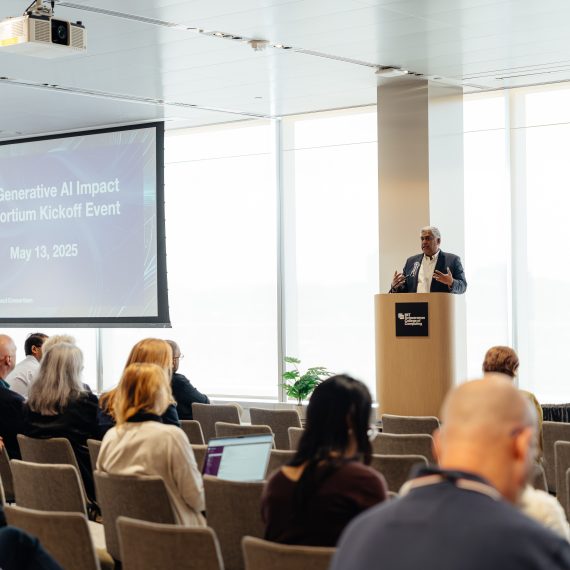Ila Fiete joins the McGovern Institute
Fiete uses a range of approaches to decipher how the brain is able to make hard computations.

Ila Fiete, an associate professor in the Department of Brain and Cognitive Sciences at MIT recently joined the McGovern Institute as an associate investigator. Fiete is working to understand the circuits that underlie short-term memory, integration, and inference in the brain.
Think about the simple act of visiting a new town and getting to know its layout as you explore it. What places are reachable from others? Where are landmarks relative to each other? Where are you relative to these landmarks? How do you get from here to where you want to go next?
The process that occurs as your brain tries to transform the few routes you follow into a coherent map of the world is just one of myriad examples of hard computations that the brain is constantly performing. Fiete’s goal is to understand how the brain is able to carry out such computations, and she is developing and using multiple tools to this end. These approaches include pure theoretical approaches to examine neural codes, building numerical dynamical models of circuit operation, and techniques to extract information about the underlying circuit dynamics from neural data.
Spatial navigation is a particularly interesting nut to crack from a neural perspective: The mapping devices on your phone have access to global satellite data, previously constructed detailed maps of the town, various additional sensors, and excellent non-leaky memory. By contrast, the brain must build maps, plan routes, and determine goals all using noisy, local sensors, no externally provided maps, and with noisy, forgetful or leaky neurons. Fiete is particularly interested in elucidating how the brain deals with noisy and ambiguous cues from the world to arrive at robust estimates about the world that resolve ambiguity. She is also interested in how the networks that are important for memory and integration develop through plasticity, learning, and development in the brain.
Fiete earned a BS in mathematics and physics at the University of Michigan then obtained her PhD in 2004 at Harvard University in the Department of Physics. She held a postdoctoral appointment at the Kavli Institute for Theoretical Physics at the University of California, Santa Barbara from 2004 to 2006, while she was also a visiting member of the Center for Theoretical Biophysics at the University of California at San Diego. Fiete subsequently spent two years at Caltech as a Broad Fellow in brain circuitry, and in 2008 joined the faculty of the University of Texas at Austin. She is currently an HHMI faculty scholar.




